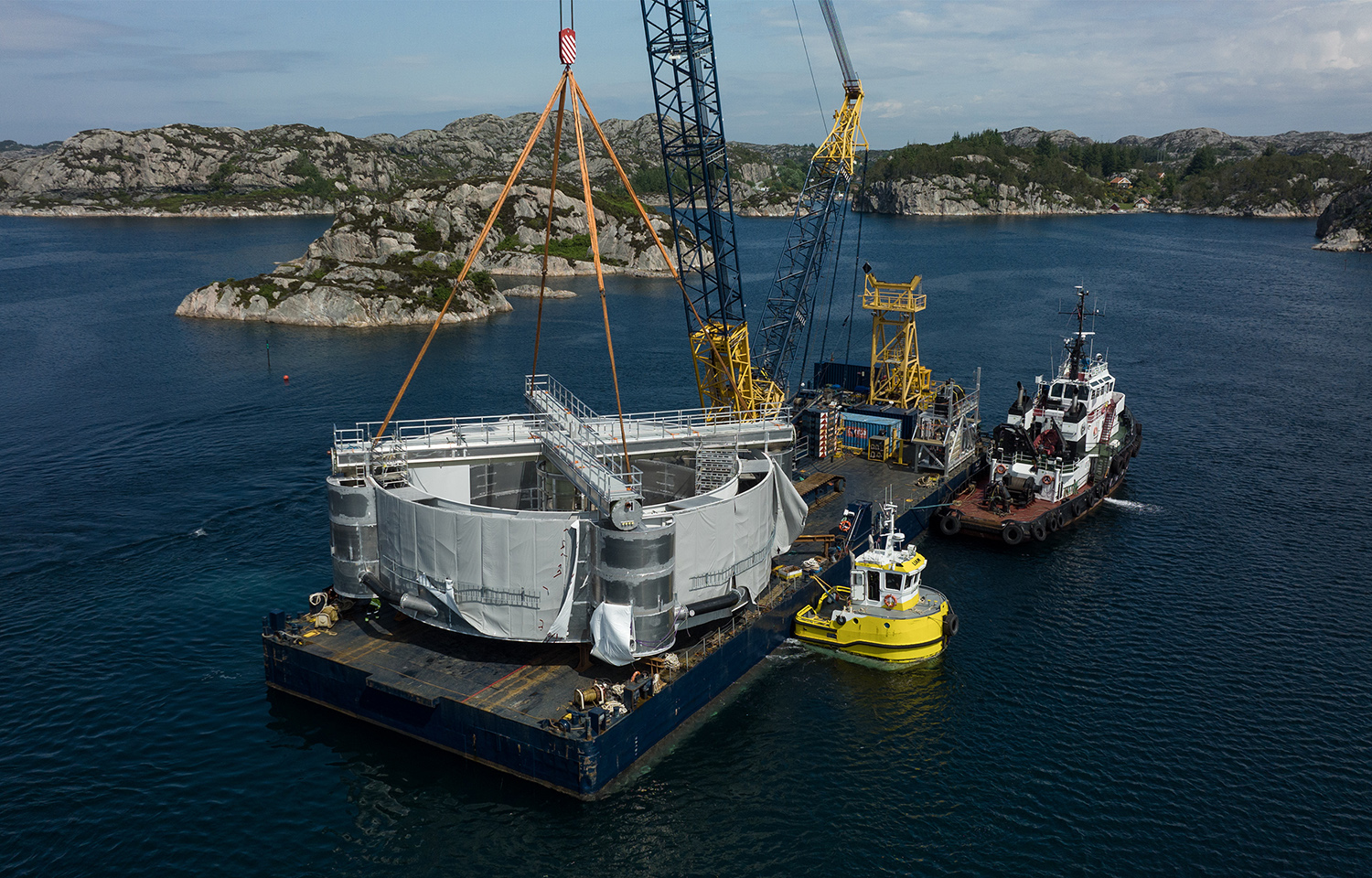Norwegian aquaculture company Baring has begun the first construction phase on its land-based salmon farm in the southern municipality of Farsund.
Baring obtained a license to build a land-based facility for post-smolt and harvest-ready fish in 2022.
Now, the company said it plans to introduce 100-gram smolts to the facility in the second quarter of 2025 and produce 1,200 metric tons (MT) of 800- to 1,000-gram post-smolt fish within a year. If all goes to plan, later phases of development will see Baring expand to its licensed production capacity of 24,000 MT per year, growing both post-smolts and salmon up to 5 kilograms, depending on what future market conditions demand.
Investment in the farm’s first phase has totaled NOK 300 million (USD 28.7 million, EUR 25.4 million), and the cost of the full farm build is estimated at between NOK 4 billion and 5 billion (USD 373 million and USD 466 million, EUR 339 million and EUR 424 million).
The company has partnered with Bergen, Norway-based Optiras, which specializes in recirculating aquaculture system (RAS) technology, for the project. Specifically, the new farm will utilize Optiras’s new, patented AquaDUCT technology, which facilitates water renewal four times hourly and recreates natural ocean conditions in the tank.
“The Optiras aluminum RAS modular design, which will be built off-site and arrive fully tested, will save a huge amount of time in the build phase. Modularity will also give us flexibility in terms of what we grow and means that we can progress the farm in stages to fill our 80,000-square-meter site,” Baring CEO and CFO Kjell Rege told SeafoodSource. “Seawater will be pumped from the deep ocean at a near-constant temperature, which will further reduce the energy requirement of the plant. Energy for the plant will be 100 percent powered by renewable sources including sun, wind, and water, and all waste products from the production process will be collected and sold to a local biogas plant.”
Rege said the ultimate goal is for the farm to become fully integrated, with an onsite processing plant to gut, pack, and further process fish as required, ready for transport to customers.
“Both Optiras and Baring have strong strategic drivers for introducing new solutions in the RAS market – for technology and financing. In this sense, the collaboration is a win-win for both parties,” Optiras CEO Asle Lygre said.
Rege said he hopes Baring's Farsund farm eventually becomes a ...








